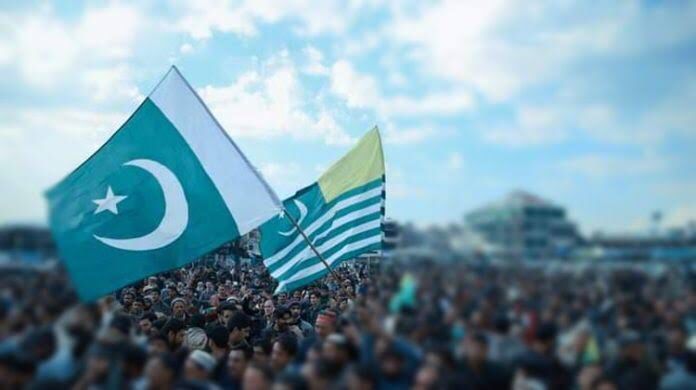The 19th of July is commemorated as “Kashmir’s Accession to Pakistan Day” by Kashmiris who reside on both sides of the Line of Control (LoC) as well as in other countries. It is marked by renewing the pledge to struggle for Kashmir’s liberation from Indian rule. The Kashmiris commemorate July 19 as Accession to Pakistan Day each year to reiterate their determination to keep fighting until Kashmir becomes part of Pakistan.
At Sardar Ibrahim Khan’s residence in Srinagar on July 19, 1947, the Kashmiri leadership unanimously approved the resolution for Kashmir’s accession to Pakistan. On this date in 1947, Kashmiris endorsed a historic resolution seeking for Pakistan to have access to Jammu and Kashmir from the stage of the “All Jammu and Kashmir Muslim Conference” in Srinagar. Following their departure, the British planned to partition the subcontinent according to demographic affinity and geographic proximity. J&K’s Muslim population sought to become a part of Pakistan. Hindu MaharajaHari Singh of the state said that he will keep the state’s autonomy against public opinion, primarily to accomplish his own personal objectives.
According to the Accession Resolution, “The Convention of Muslim Conference has reached its decision that geographical circumstances, an 80 percent Muslim population, significant Punjabi rivers passing through the state, language, cultural, ethnic, and economic relations, and the state’s proximity to Pakistan make it imperative to merge with Pakistan.” The declaration by the Maharaja sparked a riot among the J&K residents that led him to sought Indian assistance. On October 27, 1947, under the guise of the “Accession Deal,” India landed with its troops in the valley. To protect their Muslim brothers from the hostility of the Indian occupation troops, volunteers from Pakistan also travelled to Kashmir. As a result, the Azad Jammu & Kashmir area of Kashmir was partially liberated from occupied forces.
According to UNSC resolutions 47,51,80,96, 98, 122, and 126, the state of J&K will be “finally disposition of the state of J&K will be decided in accordance with the will of the people expressed through the democratic method of a free and impartial plebiscite conducted under the auspices of the UN.”
Jawaharial Nehru, then the Indian Prime Minister, promised in 1947 that Kashmiris would be able to vote in a referendum to determine the future of the region but Nehru’s promises have been buried and replaced by a new and baseless narrative that “Kashmir is an integral part of India”. Subsequently, the people of Kashmir have outright rejected this baseless story created by Indians to illegally capture the valley. The Kashmiri people had associated their destiny with Pakistan, as evidenced by the Kashmir Accession to Pakistan Resolution of July 19, 1947.
Kashmiris are suffering under the illegal Indian rule. Human rights abuses in Illegally Indian-Occupied Jammu and Kashmir (IIOJ&K) range from mass killings, enforced disappearances, torture, rape and sexual abuse to political repression and suppression of freedom of speech. Kashmiris are looking towards Pakistan for every kind of support to help them out of this misery. Therefore, Pakistan will continue to fight their case on every international platform. Kashmir is currently the most militarised region in the world because to India’s over 1 million troops, who have committed crimes against humanity.
Even 76 years after its establishment, the UN did not succeed to guarantee Kashmiris’ fundamental human rights, hold India responsible, or fulfil its pledge of a vote. Due to the strategic cooperation of Western and Indian interests, the US and its allies have been unable to pressure India to settle the Kashmir conflict. India is a key component of the US’s strategy for containing China, according to the US. India thus operates freely in IIOJ&K and the surrounding area. The UN needs to get back to its fundamental role as defined by the UN charter rather than turning into a tool in the hands of superpowers. The process of decolonization won’t be complete until the people of Jammu and Kashmir are given the power to exercise their right to self-determination through a plebiscite that is controlled by the UN, as specified in a number of Security Council resolutions.






